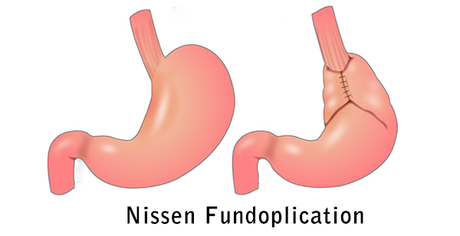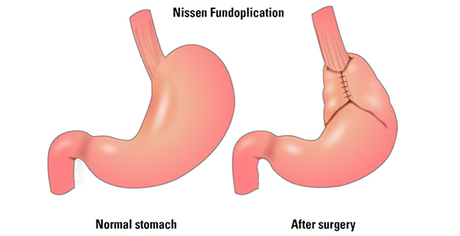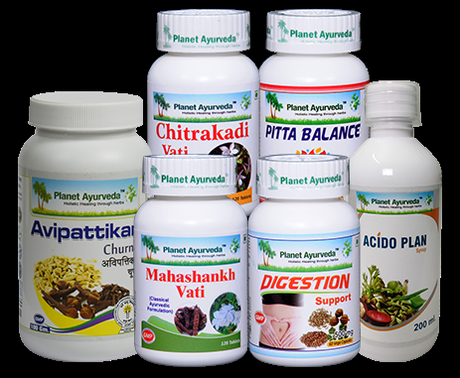
Abstract
Gastroesophageal reflux disorder is one of the most common diseases nowadays due to sedentary life habits. This causes acid regurgitation and this could last for a few days or even months, in some patients it is seen that they are not able to manage the health condition. Normally, people look for methods that treat their condition easily and only take a few days. One of these is a surgical method called Nissen fundoplication which sure brings fast recovery but there are some drawbacks. GERD is a kind of disease that could be easily managed through herbal medicine and there is no need for an operative method. Here in the article, we are going to discuss Nissen fundoplication in detail and its management through herbal medicine that will help avoid Nissen fundoplication.

What is Nissen Fundoplication
Fundoplication is simply the common surgery for Gastroesophageal reflux. Sometimes GERD also results in difficulty in moving down food into the stomach. Fundoplication helps in strengthening the opening and preventing the food or acid from going up. After this surgical method, it is important to have lifestyle changes and there are different types including: -
- Nissen 360-degree wrap: - In the procedure, the fundus is wrapped around the bottom of the esophagus that tightens the sphincter. This helps in preventing vomiting or burping from getting worse.
- Watson anterior 180-degree wrap: - The esophageal part is taken which is present next to the diaphragm. After that, the fundus is wrapped halfway around the anterior, bottom part of the esophagus and then attached to the part of diaphragm tissue.
- Toupet 270-degree posterior wrap: - The two-thirds part of the fundus is wrapped around the backside and is then attached to the diaphragm tissue.
Every procedure is laparoscopically done where the surgeon makes different incisions and a camera in the form of a thin tube is inserted.
How is The Patient Prepared For Surgery?
These are the following steps that are asked by the patient before performing the operation:-
- They are told to drink clear liquids for almost 24 to 48 hours before performing the surgery. Solid foods should be avoided.
- Some prescribed medicine is given that will help in clearing out the digestive tract.
- It is told to avoid anti-inflammatory drugs like acetaminophen and ibuprofen
What is The Procedure?
An intravenous tube is inserted into the veins and both anesthesia, as well as fluid, is regulated during the surgery. During this time the patient is completely unconscious and each type has a different procedure. It takes about 2 to 4 hours for the overall procedure and here are the general steps:-
- Firstly, several incisions are made around the skin and peritoneum which is the layers around the gut.
- A thin tube along with a camera is inserted through the incision.
- The fundus is then folded around the tissue of the lower esophagus.
- Dissolving stitches are used where the fundus is attached to the esophagus.
- If there is any gas then it is passed out.
- The incisions are closed with dissolving stitches.
What are The Complications?
There are various health complications bought by the surgery. The lining of the stomach, the lung can get pierced during the laparoscopic procedure.
- Infection
- Pneumonia
- Trouble in swallowing
- Gagging
- Building up of gas
- Dumping syndrome (It is the condition where the food travels too fast).
- Avoid foods that may cause trouble or make the condition worse.
- Try eating calories around 200 to 300 meals per day.
- Consumption of Alcohol should be done at any cost.
- Exercise for almost 30minutes a day to maintain a healthy weight.
Herbal Treatment Provided By Planet Ayurveda
Planet Ayurveda provides herbal medicine that is 100 percent pure, natural, and vegetarian. Each herbal medicine is made under the supervision of an MD Ayurvedic Doctor. All the remedies are clinically tested making them free from side effects and safe to use as well. Here is the list of medicine used for the treatment and along with that there are different types including:
- Acido Plan Syrup
- Pitta Balance
- Mahashankh Vati
- Chitrakadi Vati
- Digestion support
- Avipattikar Churna


Product Description
1. Acido Plan Syrup
This contains herbs like Patola (Trichosanthes dioica), Kokum (Garcinia indica), Shatavari (Asparagus racemosus), Sajjikhar (Soda-bi-carb) and many more. This tonic helps in treating all kinds of digestive problems like heartburn, gas, bloating etc. Along with that it is also very effective in giving strength to the body as well.
Dosage: 1-2 tsp twice a day
2. Pitta Balance
This herbal medicine is packed with herbs like Praval Pishti, Akik Pishti, Kamdudha Ras, Giloy satva (Tinospora cordifolia), etc. It helps in balancing the Pitta Dosha by improving the metabolism. It is very effective in reducing anxiety as well as anger and also reduces acid reflux.
Dosage: One capsule twice daily with plain water after meals.
3. Mahashankh Vati
It consists of many herbs like Saikharika (Achyranthes aspera), Chitraka (Plumbago zeylanica) along many other excellent herbs. Due to its anti-inflammatory and analgesic property, it helps in managing the pH levels of the stomach and regulating gastric juices as well. It also helps in regulating digestion and reducing colic pains as well.
Dosage: - 2 capsules twice daily after meals with plain water.
4. Chitrakadi Vati
This herbal medicine is very helpful in treating IBS as well as GERD and helps in treating Diarrhea. It helps in detoxifying the body by balancing all three Dosha and removing all the accumulated toxins from the body as it is made from herbs like Chitraka (Plumbago zeylanica), Pippali moola (Piper longum), Ginger (Zingiber officinalis), Maricha (Piper nigrum), etc.
Dosage: - One tablet twice daily with water after meals.
5. Digestion Support
This herbal medicine contains excellent herbs like Haritaki (Terminali chebula), Amla (Emblica officinalis), Sounf (Foeniculum vulgare), Jeerak (Cuminum cyminum) and many more. All the herbs work together and help in improving digestion. This herbal medicine is useful in controlling gas, acidity, and pain as well.
Dosage: - One capsule twice daily with plain water after meals.
6. Avipattikar Churna
It contains herbs like Pippali (Piper longum), Haritaki (Terminalia chebula), Vibhitaka (Terminalia bellerica), Shunthi (Zingiber officinale), etc. It helps in treating diseases like gastritis, acidity, and indigestion as well. Due to its property, it is very effective in removing toxins from the body channels.
Dosage: - One teaspoonful twice daily with water after meals.
Conclusion
GERD is a disease that can be easily handled through herbal medicine and surgical methods like Nissen fundoplication can be avoided. All the above-mentioned herbal remedies will remove all the complaints related to GERD and will manage the disease without causing any side effects.

